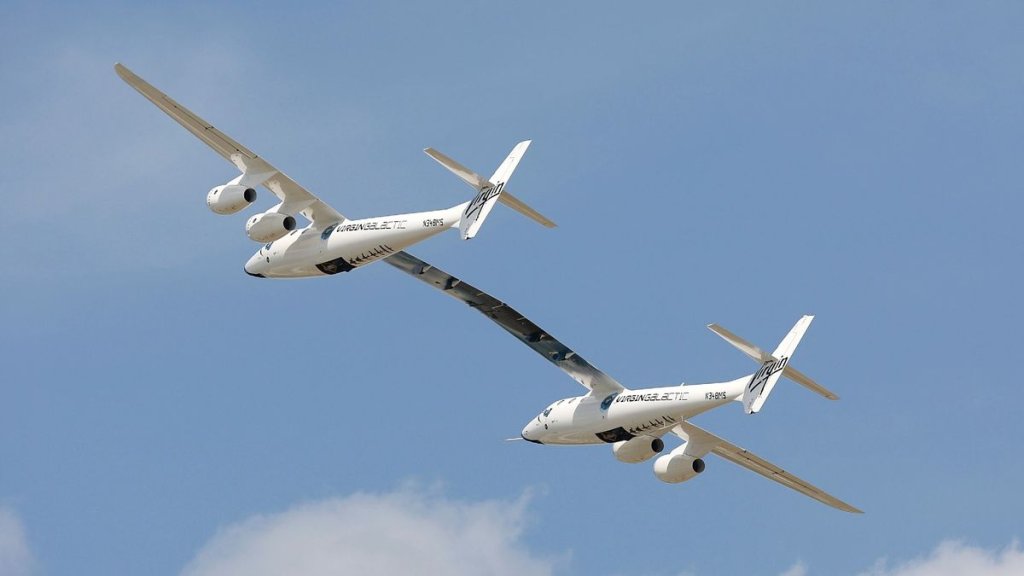Boeing and its subsidiary Aurora Flight Sciences are suing Virgin Galactic over unpaid work and the misappropriation of trade secrets.
The suit alleges that Virgin Galactic has not paid $26.4 million in invoices for work related to the development of a new “mothership” aircraft intended to power Virgin’s next-generation suborbital space planes. The suit was filed in the U.S. District Court for the Eastern District of Virginia on March 21, according to a SpaceNews report.
Virgin Galactic argues that the lawsuit is baseless in both facts and law and intends to defend itself vigorously, according to comments made to SpaceNews by a company spokesperson.
Related: Virgin Galactic picks Boeing subsidiary to build new carrier planes for space tourism flights
Suborbital space tourism provider Virgin Galactic uses a carrier aircraft mothership to haul a space plane to an altitude of about 50,000 feet (15,000 meters). Then the space plane falls free and begins its rocket-powered journey to suborbital space.
The company selected Aurora Flight Sciences in 2022 to build two new motherships. These would be delivered in 2025 and replace the current VMS Eve and be rated to fly as many as 200 times a year.
However, work halted after the completion of preliminary design work in May 2023. Boeing and Aurora claim that the project’s budget and timeline constraints led to the conclusion that the new mothership could not be developed as Virgin Galactic envisioned.
Additionally, Boeing and Aurora accuse Virgin Galactic of misappropriating trade secrets. These specifically concern technical specifications and modeling equations for aircraft performance, passed inadvertently to Virgin as part of the project. Boeing and Aurora have requested Virgin destroy this proprietary information.
Virgin declined to do so, claiming it had intellectual property rights to them as part of the agreement, according to the report.
The company has also shifted focus away from developing a new mothership, concentrating on producing its Delta-class space plane, with plans to continue using VMS Eve for upcoming test and commercial flights.

